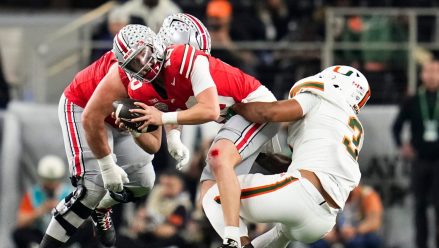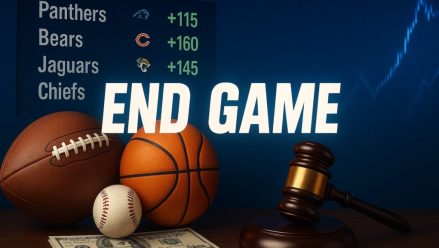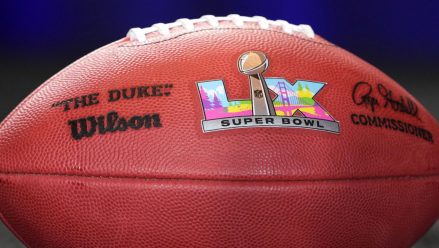In more than 30 years in marketing, Hot Paper Lantern CEO Ed Moed has watched — and on many occasions helped — companies pivot and position themselves for prosperity. He’s watched others rest on what their executives thought were enduring qualities that would always be in demand. And then fail.
More than seven years after the nullification of the Professional and Amateur Sports Protection Act (PAPSA) made the legalization of sports betting a state-by-state decision, 41 jurisdictions in the United States have done so. Consolidations, acquisitions and failures in the burgeoning sports betting industry established the market leaders quickly as DraftKings and FanDuel.
Then upstart daily fantasy sports apps like PrizePicks and Underdog offering similar markets began tugging at the pair’s customer bases before regulatory pushback in numerous states. Then came casino sites mimicking their real-money counterparts in states where iGaming hadn’t been legalized. More regulatory pushback. Then prediction markets like Kalshi began offering the equivalent of sports bets, including parlays.
This will all sort itself out through a combination of legal action and, crucially, according to Moed, adaptation by the companies attempting to carve a slice of what the American Gaming Association calculated as a $71.92 billion industry in 2024.
“Companies that have been there for four or five, six, seven years that have lasted have done what most companies and startups have to do in any technology area, which is they need to learn to adapt,” Moed told InGame. “They need to learn to offer different types of value to be able to survive and to hopefully do well.”
Therefore, Moed said, “hybrid models” of businesses have arisen for the successful. Flutter Entertainment rebranded the TVG thoroughbred horse racing network as FanDuel TV in 2022, and DraftKings’ response, DK Horse, followed in 2023 in a partnership with Churchill Downs Inc. DraftKings leaped into the lottery courier service business by buying Jackpocket in 2024 and deeper into microbetting by acquiring Simplebet the same year. Sportsbooks layered on social platforms and daily fantasy sports apps had to contort to avoid state attorneys general branding cease-and-desist orders. Peer-to-peer DFS became ascendant.
Sweeps casino are facing a major pushback — California recently passed a ban – but remain ubiquitous. FanDuel in August announced a partnership with Commodity Futures Trading Commission-licensed CME Group to launch a prediction market. DraftKings, meanwhile, was reportedly pursuing a deal of the Railbird exchange.
Diversification. Diversification.
“A lot of companies don’t just offer one thing,” Moed said. “They try to do a number of things. They see their business model has to change. And that all stems from the fact that ultimately what the gamer, the sports bettor or the fantasy player or whatever wants has changed or what their needs are, basically.
“Some of these hybrid models are working and some it’s TBD. I do see some real innovation, but of course there’s been a lot of fallout where companies just haven’t made it over the last year, whether they couldn’t raise capital or the business model just didn’t have what it takes in terms of the needs of their customer, basically.”
Alliances, adaptations, survival
Sportsbooks are aligning with prediction market platforms in case Kalshi’s protracted crusade to continue offering sports wagers nationally with federal-level CFTC oversight prevails.
Moed believes each of the new disruptors — predictions markets, sweeps and social casinos — will evolve and survive, as daily fantasy sports apps offering “Pick’em” games have in recent years, by adding to peer-to-peer contests in states opposed to their business model.
“They’re all in some ways hedging their bets to make sure they don’t lose out,” Moed said. “I feel like [prediction markets] will stay. I feel like there’s some sticking power. And the social casino part is really about almost what fantasy sports was five, six, seven years ago until some of them got into trouble, like Pick’em, etc., where it was like finding a loophole.
“At some point in the future, I have to believe some of the regulations will tighten, but I don’t see it totally going away. I see it fitting into a need because there’s a loophole and then they’ll shift based on whatever new compliance issues come out, regulatory issues come out. They’ll become something a little bit different, basically.”
Goliaths must remain nimble, too
The same can be said for FanDuel and DraftKings, which dominate American sports betting with a combined estimated market share of around 80%. The titans of the U.S. market were DFS companies prepared to morph into sports betting platforms and battle legacy gambling brands when PASPA fell. Now they’re fighting off — and amalgamating — the new disruptors. They’ve been wise to do so, Moed said, because while bringing a massive database of likely-inclined customers to the new venture undoubtedly helped in 2018, its benefit was finite.
“I think those advantages that they came in running with aren’t as strong as one would think, because let’s just use analogies from other things,” Moed said. “There’s this thing way back when called MySpace. Think about other categories that only last so long if you’re not really an innovator, if you’re not really giving the customer what they want.
“[DraftKings and FanDuel] definitely have a large chunk of that customer base, but that customer base wouldn’t have stayed if a couple of things weren’t happening,” he continued.
“One, if the brand development and the branding they do everywhere wasn’t so strong.
“Two, they’re very good at the promo game, which still means something. Even though a lot of people say you’ve got to lower the promos, you can’t do as much with the model, well, their models are doing pretty well if you look at their stock prices and what they’re doing financially.
“And three, it is about the experience. And the overall experience is not even just the app. It’s everything else you experience, whether it’s their TV shows, their news, their branding where they have physical events.”
Moed called the two companies’ apps “far superior” to competitors.
Moed likened DraftKings’ and FanDuel’s marketing savvy to that of Coke, Budweiser or other non-gambling brands.
“They do it in a modern digital way. And so they know how to keep their customers,” he explained. “They’ve also done something really smart that I see. They’re the first out there that I’ve seen that has done a pretty good job, I think, of courting the VIP gamer and bettor. I don’t foresee them losing a lot of market share anytime soon.”
/
Sponsor InGame and reach thousands of industry professionals every month. Your support keeps our reporting and data free for readers — and gets your brand seen where it matters. Email [email protected] for more information.








